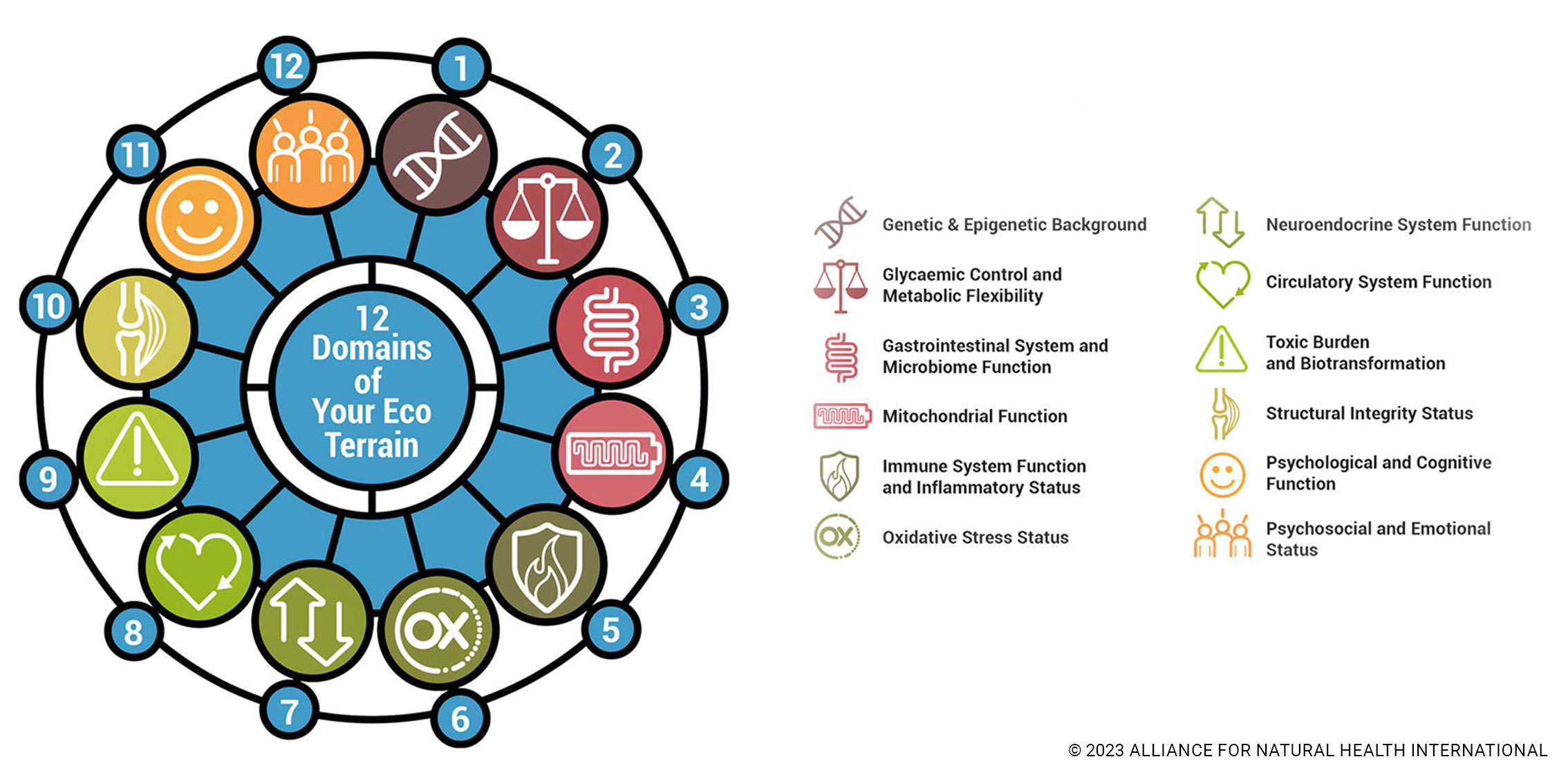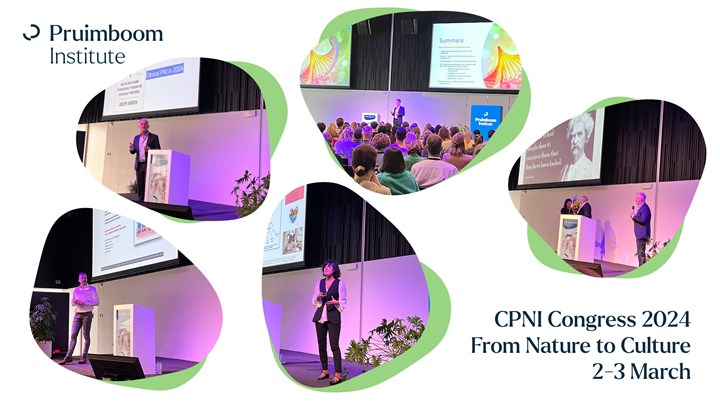By Rob Verkerk PhD, founder, scientific and executive director
An increasingly complex world, where most people are destined to succumb to one type of preventable disease or another, requires a different way of looking at health. Our health, at any point in time, is largely down to the play-off between our genes and our environments.
It’s wrong to think of our genetic book of life as indelible. Epigenetics inform us that it is our environment that controls how our genes are expressed. And the most intimate ways in which we experience our environments include the foods we eat, the water we drink and the air we breathe. In it are compounds, often many thousands, to which we can be exposed each day, yet unknown to our recent ancestors.
The long and short of it is that we need new ways of measuring the profound ways in which gene-environment interactions impact the function and status of the multiple, interconnected ‘operating systems’ on which we rely for the duration of our lives.
Disturbances in the function of the network of these operating systems can have neutral, mild or catastrophic impacts on our health. These impacts may be felt in minutes, weeks, years or decades. They may manifest - downstream - into any number of the 30,000 or so described human diseases.
Waiting for the system to blow a gasket or grind to a halt on the side of the road of life is hardly progressive. Yet it’s what happens in the majority of instances in the mainstream medical system - the huge repair garage that’s absorbing an ever larger fraction of taxpayers money, the future viability of which is now threatened. The repair efforts of this garage are becoming more costly, it’s becoming tougher to get staff, more and more of them are suffering burnout and they often have no option other than to admit that some of the most common repairs are beyond their means. That’s because by the time they get to do their work, the problems they encounter are both fiendishly difficult to deconstruct and they are often also irreversible.
The real solutions lie in understanding disturbances in our ecological system as early as possible. Focusing on disease doesn’t make sense as it means we don’t take evasive action until diseases manifest. We need to recognise disturbances early - and often outside the medical establishment - that garage that has long served as the place we go to for major repairs.
That calls for a new language that we can all use, one that isn't just the preserve of those who run the garage. We need a model that works in communities - the places we spend most of our time.
This brings us to our blueprint for heath system sustainability and the Ecological Terrain - one of its central components - the system we propose using so that we can see disturbances in our inner and outer networks as early as possible.
Not everyone has the time or capacity to absorb the implications of the 140 pages of our Blueprint Report. So Ellen in our team has made you a video that explains the essence of the Ecological Terrain.
We hope you find it interesting - and if it’s of interest - please be sure to make sure you're signed up to our weekly Heartbeat newsletter so you can be among the first to hear about the groundbreaking project that sets out to evaluate an entirely new approach to managing human health, based on the the principles of ecology and sustainability, the very things that were not front and centre when mainstream medicine built its garage.








Comments
your voice counts
There are currently no comments on this post.
Your voice counts
We welcome your comments and are very interested in your point of view, but we ask that you keep them relevant to the article, that they be civil and without commercial links. All comments are moderated prior to being published. We reserve the right to edit or not publish comments that we consider abusive or offensive.
There is extra content here from a third party provider. You will be unable to see this content unless you agree to allow Content Cookies. Cookie Preferences